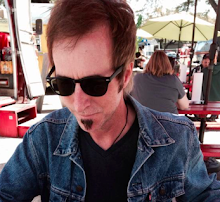Like it or not, the new features unveiled at F8 will change the way you share and receive updates from your friends and connections. But Addie McGowan and Brittany McManus of Bigfish were wondering, “What does this mean for businesses?” So, here we go:
The change may mean nothing new to those who subscribe to Bigfish's Participation Age philosophy as it is applied to marketing on social media platforms. However, the changes will enable tactics that move your social marketing to an entirely new level. And brands that don’t “get” it will be weeded out.
The changes present a new era of accountability for brands. They will be forced to step up and truly give themselves away to their customers. If they don’t, they’ll be “hidden” and forgotten in the realm of the Newsfeed.
Here are three F8 changes and what they mean to brands:
1. Ticker and Newsfeed: These two features offer a second chance to reach people. Now that users can control their own ideas of “newsfeed optimization,” your content needs to keep them interested. If your post doesn’t end up in their newsfeed (as most don’t), you now have a second chance to grab their attention with Ticker. Last week, Zuckerberg explained Ticker as a way to de-clutter the newsfeed but still allow users to make “serendipitous” discoveries about their friends and connections. Eye-catching posts will grab the attention of users to the Ticker. Seize this marketing opportunity and own it by posting truly social content or rewarding fans that interact.
2. Friend Activity on Pages: A trusted recommendation. A new, slightly overlooked update to business pages is the “Friend Activity” link located under the profile picture. Your potential customers can now check out what friends are saying about their experiences with your business. It cuts through the clutter of activity from strangers and gets to what users really care about - their friends’ opinions. “Lindsey and I have the same taste in food, so if she likes their burger, I bet I will, too.” Depending on the activity, this feature could entice users to do business with you, or go to your competitor.
3. Facebook: A more comprehensive extension of the human social experience. The Timeline and Ticker redesign have even more addictive qualities than the old design, and the 800 million people on Facebook will most likely be spending even more time there. What does this mean from a marketing standpoint? It is now more important than ever to carve out a place for your brand there. If you are not enabling your best customers to share what they love about you with their friends, or to connect with them socially, you are missing out. And you and I both know someone else will seize your missed opportunity.
Brands are going to have to engage their fans and followers more than ever. In order to obtain visibility in Newsfeeds, brands must strive to post content that will result in meaningful conversations and significant interaction. We’ve said it before, but now, thanks to f8, it matters more than ever.
The ability to evolve for the better is a necessary trait for any successful brand – even Facebook. Change is good.
